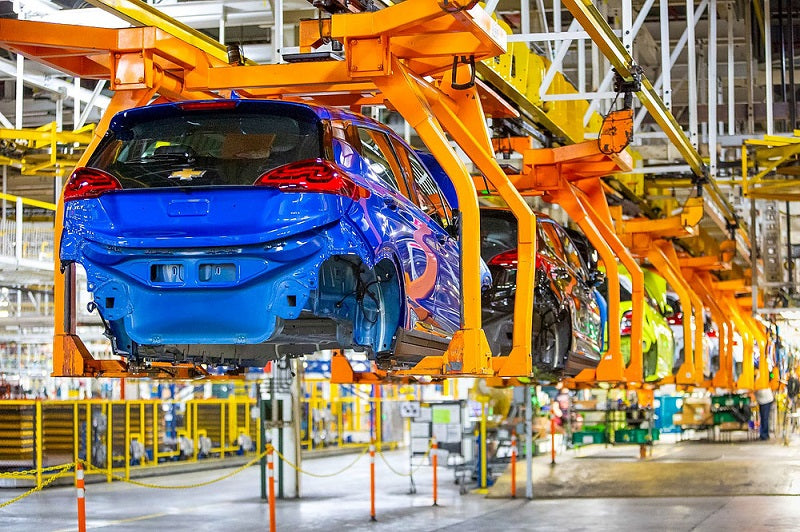Over the next five years, General Motors plans to deliver a full range of electric automobiles. However, GM is facing a major upset with the ongoing recall of Chevrolet Bolt EV batteries—for which replacements can't even begin until GM figures out what went wrong—threatens to cast a gloom over the 2022 GMC Hummer EV pickup's arrival and the 2023 Cadillac Lyriq's recent debut.
Since GM discovered 50,930 Bolt EVs from model years 2017 to 2019 that may have defective batteries, the recall has turned into a slow-motion disaster. Later, that number climbed to 68,700 automobiles. It recalled the identical automobiles again in July when engineers discovered two potential problems that may occur in the same cell in rare instances.
Then it got worse: last month, GM included all 63,680 Bolt EV and EUV cars from the 2020 model year to the present, as well as 9340 Bolts from the 2019 model year that hadn't been previously recalled, due to "an excess of caution."
The new Bolt EUV model was just being shipped to dealers when the announcement was made; all related actions have already been halted. Meanwhile, Chevrolet has significantly reduced Bolt costs for 2022, repositioning the vehicle as an inexpensive entry-level EV to complement the future luxury GMC and Cadillac versions.
Every Bolt the business has made since sales began in December 2016 is included in the total recall, which spans six model years and 141,000 electric vehicles. No timetables for cell replacements have been provided. Approximately a dozen fires in Bolt EVs have been reported publicly. There have been no reported injuries or deaths as a result of the situation.
The Bolt’s lithium-ion cells were provided by GM’s longtime battery supplier LG Energy Solutions (the battery arm of Korean manufacturer LG). For several months, the carmaker believed the affected cells were limited to those produced in LG's plant in Korea. Those cells were used only in 2017–2019 Bolt models.
But then GM discovered manufacturing defects in certain battery cells produced at LG manufacturing facilities beyond Korea, and has affected LG's USA plant in Michigan, which supplied cells for the 2020–2022 Bolt line.

What went wrong?
According to GM, two different manufacturing faults have been detected, and in rare situations, the two defects may coexist in the same cell, increasing the risk of a fire spreading across the module.
There are two plausible scenarios that could have resulted in the combination of defects that caused short circuits in one or more cells and subsequent flames.
To begin with, an unnoticed error in the manufacturing process may have caused one imperfection to arise at a faster rate than expected, even if that issue would not have produced a short circuit on its own.
Other battery specialists have proposed explanations for how and why the defective cells were manufactured. A misaligned robot on a cell production line is one possibility. Second, for the pair of errors to cause a significant short within the cell, some combination of certain vehicle uses may be necessary.
Those factors could include operating conditions, such as whether the driver frequently uses full acceleration, drawing maximum current from the cells, as well as ambient temperatures, charging rates, and whether the battery packs are regularly charged to full capacity and then depleted almost to zero percent.
What Now?
While GM has stated that it will replace impacted battery modules, it will not do so until it is sure that the fundamental causes of the faults have been uncovered. It believes they are caused by flaws in the manufacturing process, but it hasn't ruled out the possibility of design flaws. In the meanwhile, all Bolt production has been halted, and no new Bolt variants are available for purchase.
In a tweet yesterday, Tesla's Elon Musk backed one effort to prove fires have occurred in 0.01% of Tesla cars on the road, far fewer than for the car industry as a whole. He seems to think EVs might be getting a bad rap. The stats show that Tesla vehicles may be less likely to catch fire than any other car. But as Musk pointed out at Tesla's AI Day when talking about how Tesla has used its expertise in managing batteries in its cars to build the supercomputer used to help improve its autonomous-driving functions: “Tesla has a lot of expertise in power electronics and cooling. Getting heat out is extremely important.”








